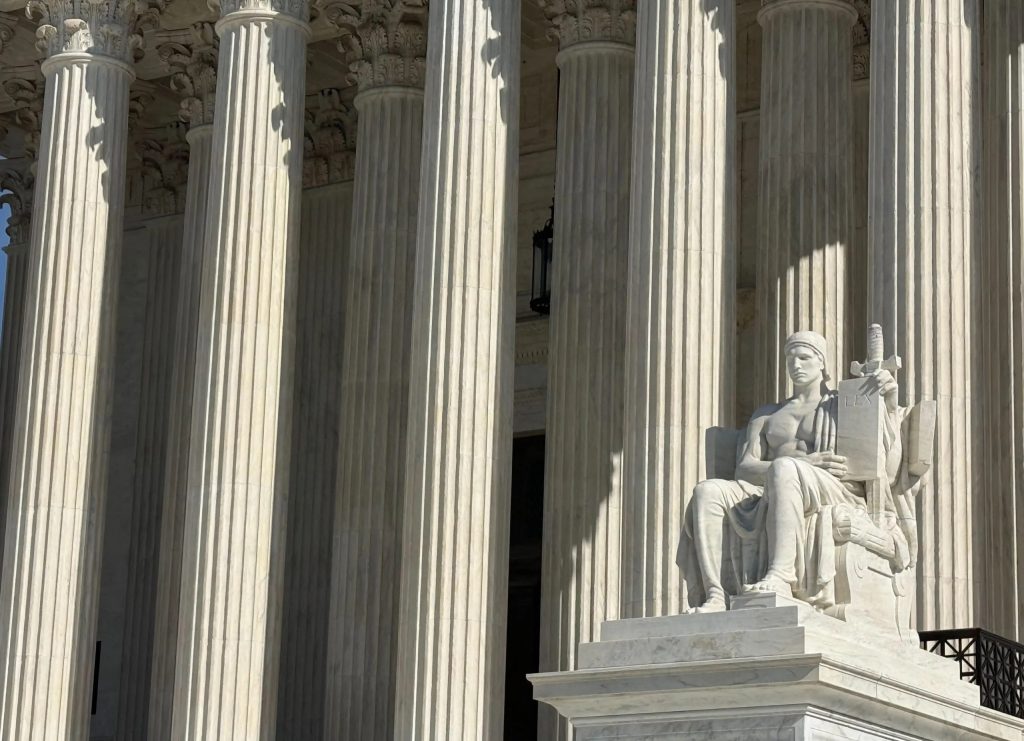Attorneys representing a gaggle of Louisiana voters difficult the creation of a second majority-Black congressional district within the state told the Supreme Court docket on Wednesday {that a} key provision of the Voting Rights Act is “inconsistent with the letter and spirit of the Structure.”
The submitting got here in a dispute that might result in a serious choice on voting rights and redistricting. The dispute started a number of years in the past, when a gaggle of Black voters filed a lawsuit in federal court docket difficult the congressional map adopted by the Louisiana Legislature in 2022. That map contained just one majority-Black district, though almost a 3rd of the state’s inhabitants is Black. The Black voters contended that the 2022 map diluted the votes of Black residents.
A federal district court docket agreed with the Black voters that the 2022 map seemingly violated Part 2 of the Voting Rights Act, which prohibits election practices that lead to a denial or abridgement of the suitable to vote.
A federal appeals court docket in New Orleans upheld that ruling, and it instructed Louisiana to attract a brand new map by Jan. 15, 2024. If it failed to take action, the state might face the prospect that the district court docket would draw one as an alternative.
After the Louisiana Legislature adopted a brand new map that contained a second majority-Black district, the challengers within the case now earlier than the court docket – who describe themselves as “non-African American” – went to federal court docket, the place they argued that the 2024 map was an unconstitutional racial gerrymander – that’s, it unconstitutionally sorted the state’s voters based mostly totally on their race.
A 3-judge federal district court docket agreed with the challengers, however the Supreme Court docket paused that court docket’s ruling, permitting the state to make use of the 2024 map within the 2024 elections.
When the case first got here to the Supreme Court docket, Louisiana advised the justices that it was caught between a rock and a tough place: On the one hand, it wanted to adjust to the VRA, however then again it additionally wanted to adjust to the 14th Modification’s equal safety clause, which prohibits the federal government from treating individuals in a different way except there’s an sufficient cause. To the extent that it had thought-about race in drawing the 2024 map, the state contended, it did so solely to adjust to the court docket orders within the earlier litigation requiring it to create a second majority-Black district. However as soon as it knew that it had to attract the second district, it mentioned, it targeted on defending two of the state’s high-profile Republican incumbents, Speaker of the Home Mike Johnson and Rep. Julia Letlow, who sits on the Home Appropriations Committee.
The ”non-African American” voters argued that the Legislature had “’first made the choice’ to impose the racial quota” of two majority-Black districts, after which targeted on politics. However even when compliance with the VRA was Louisiana’s true purpose, they wrote, that exhibits that race was the first issue driving its choice to attract the second majority-Black district.
The Supreme Court docket heard oral arguments within the case in March. On June 27, the justices announced that they might hear arguments within the case once more through the 2025-26 time period; they later directed the litigants to deal with a selected query: whether or not Louisiana’s intentional creation of a second majority-Black district violates both the 14th Modification or the fifteenth Modification, which bars each the federal authorities and states from denying or abridging the suitable to vote “on account of race, colour, or earlier situation of servitude.” Each amendments have been enacted within the wake of the Civil Warfare in an effort to ascertain equality for previously enslaved individuals.
In briefs filed on the Supreme Court docket late final month, Louisiana urged the justices to go away the decrease court docket’s ruling that struck down the 2024 map in place, telling them that it “needs out of this abhorrent system of racial discrimination.” Race-based redistricting is unconstitutional, the state wrote, even when it happens on account of a need to adjust to Part 2. The Black voters, in contrast, continued to defend each the 2024 map and the VRA, telling the justices that the regulation “is the crown jewel of civil rights laws.”
Of their briefs on Wednesday, the “non-African American” voters argued that Part 2 “closely impinges on States’ sovereign energy to control their elections and draw congressional districts.” Furthermore, they added, “remedial ‘race-based districting can not prolong indefinitely into the longer term.’”
The voters urged the Supreme Court docket to ship the case again to the decrease court docket rapidly with directions to “expeditiously end what it virtually accomplished in early 2024: a map based mostly on conventional redistricting ideas unburdened by any VRA quota.”
In a separate transient, Louisiana Secretary of State Nancy Landry agreed with the state’s argument, made in its transient on Aug. 27, that Part 2 violates the Structure. However in any occasion, she added, as a result of Louisiana’s Black inhabitants is geographically dispersed, “the creation of a second majority-Black congressional district by slicing and dicing varied communities, typically lots of of miles aside, runs afoul of the Equal Safety Clause of the Fourteenth Modification.”
Circumstances: Louisiana v. Callais, Louisiana v. Callais, Robinson v. Callais
Advisable Quotation:
Amy Howe,
Group of Louisiana voters urges Supreme Court docket to strike down main provision of the Voting Rights Act,
SCOTUSblog (Sep. 17, 2025, 6:55 PM),
https://www.scotusblog.com/2025/09/group-of-louisiana-voters-urges-supreme-court-to-strike-down-major-provision-of-the-voting-rights-act/
